



A key component of our Develop with Dignity program is working with the community to bring Sexual Reproductive Health Education, including Menstrual Health, into the classroom.
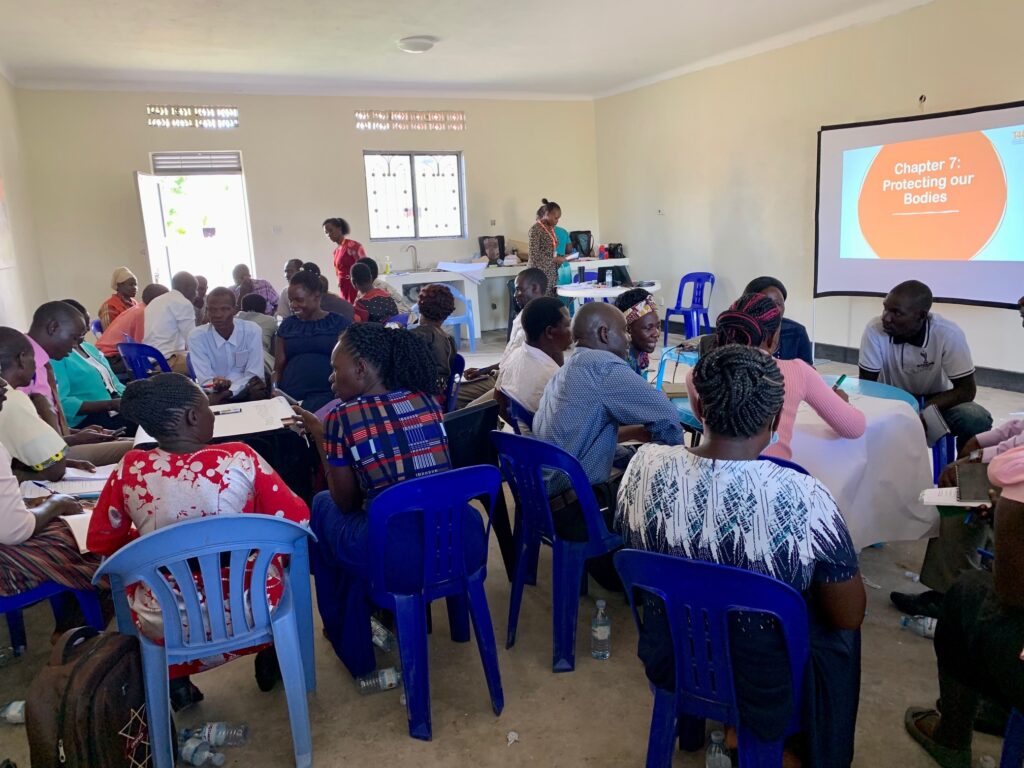
“The training has been so nice, so interesting, the facilitators were very lively, everything was so participatory, and the myths have been disqualified and facts have gotten to the mind”
“What has challenged me more is, girls especially have been intimidated, whereby they are exposed, they conceive without knowledge, they conceive because they are not taught.”
Comprehensive Sexual Reproductive Health education is often overlooked or dismissed – with the belief that young people will learn what they need to from home, or from friends.
However, research shows that Ugandan parents frequently outsource this vital educational role to extended family members who often repeat culturally held beliefs and traditional stories rather than provide evidence-based, accurate information.
Our model of training has been developed over several years as one strand of our holistic approach to ending period poverty and removing barriers to education.

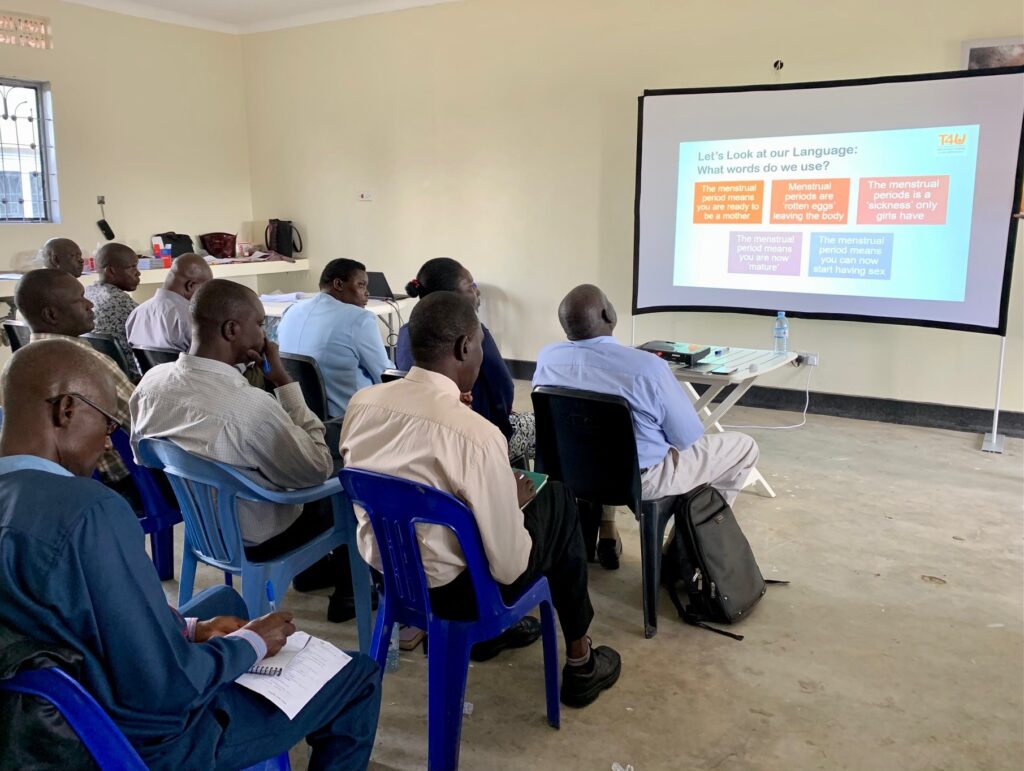
An essential part of the program is challenging those harmful normal beliefs and practices that often restrict girls and women participating within society.
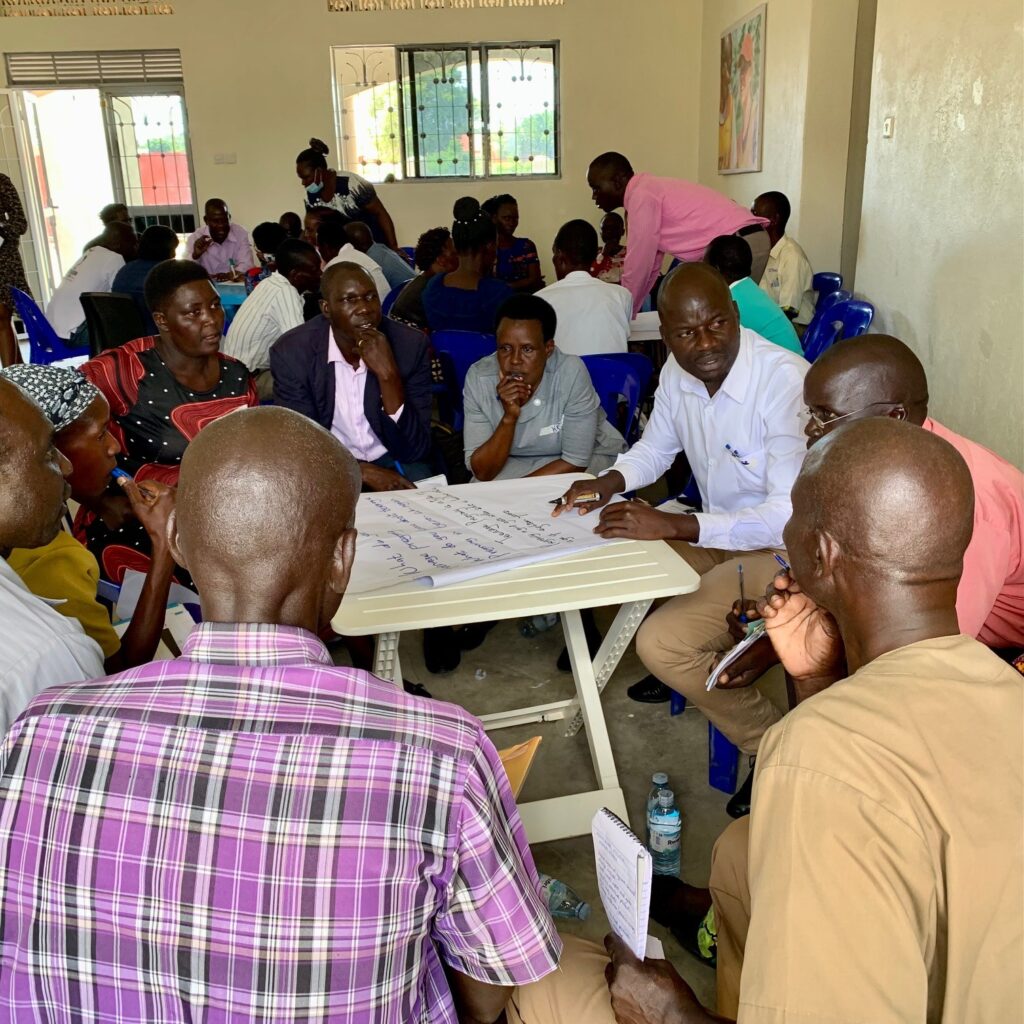
Our training program has had many positive results and has extended to other community-based organisations and NGOs, alongside engaging with local leaders, the religious community, and local government. We hope our program can be utilised widely and support many more educators to adopt comprehensive sexual reproductive health education into their standard practice.
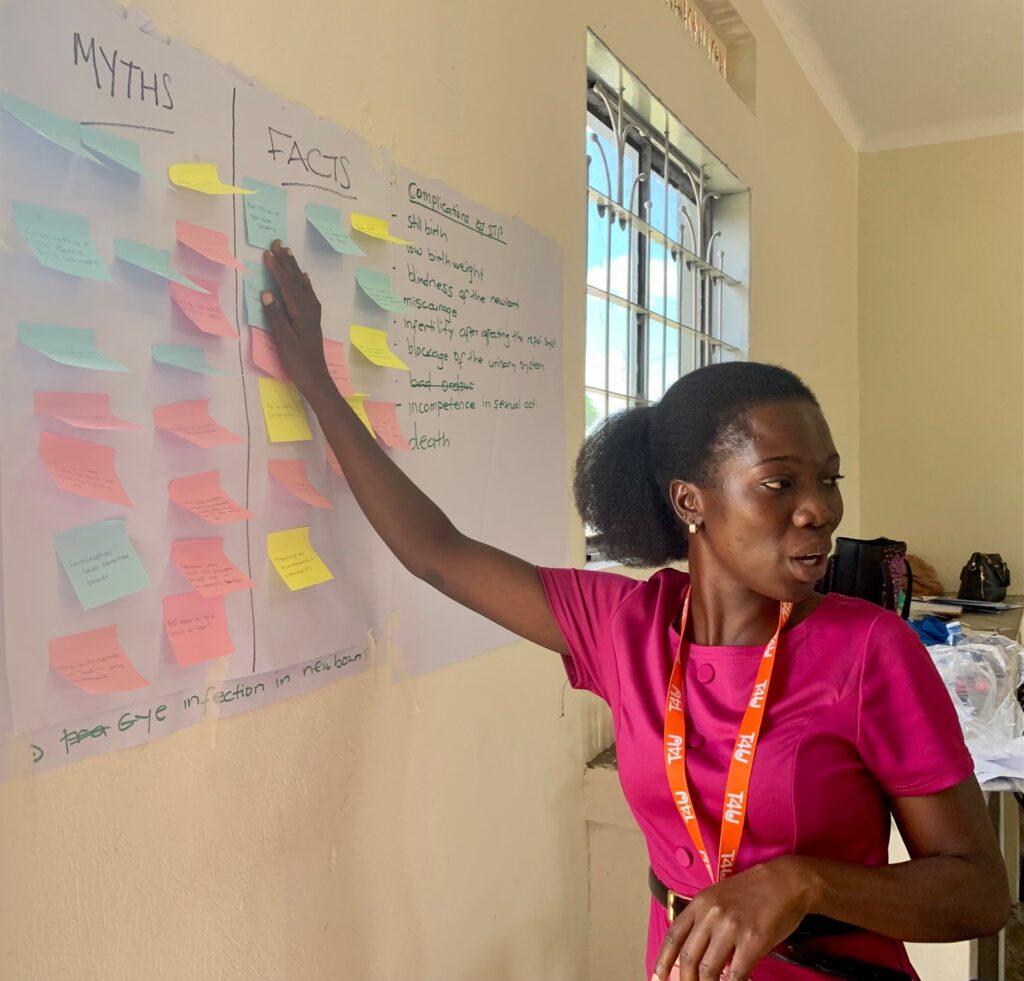
Family planning is where there are beliefs that somehow this training clashes with. My culture believes that family planning causes cancer, family planning causes infertility… but I have got to realise that this training has given me the best information, because family planning doesn’t cause cancer, neither does it cause infertility, but instead it helps an individual to raise a manageable family.
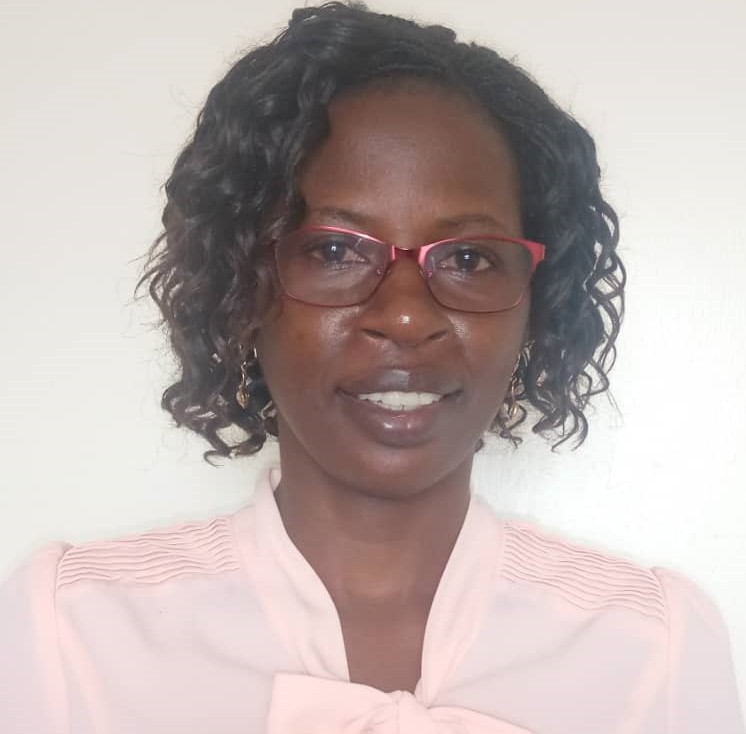
The training I’ve gotten from Teams4U, for the last three days, has been the best. I have been teaching about reproductive health, but there were so many things I didn’t know. Now I have been given even better knowledge.
For example, I have thought that contraceptives caused infertility, and that girls should not cross the garden, or walk though a crop of g-nuts, whilst on their menstruation, but these things have been clarified today. I am excited to go back into my community, and our outreaches in villages and schools, with the best knowledge.